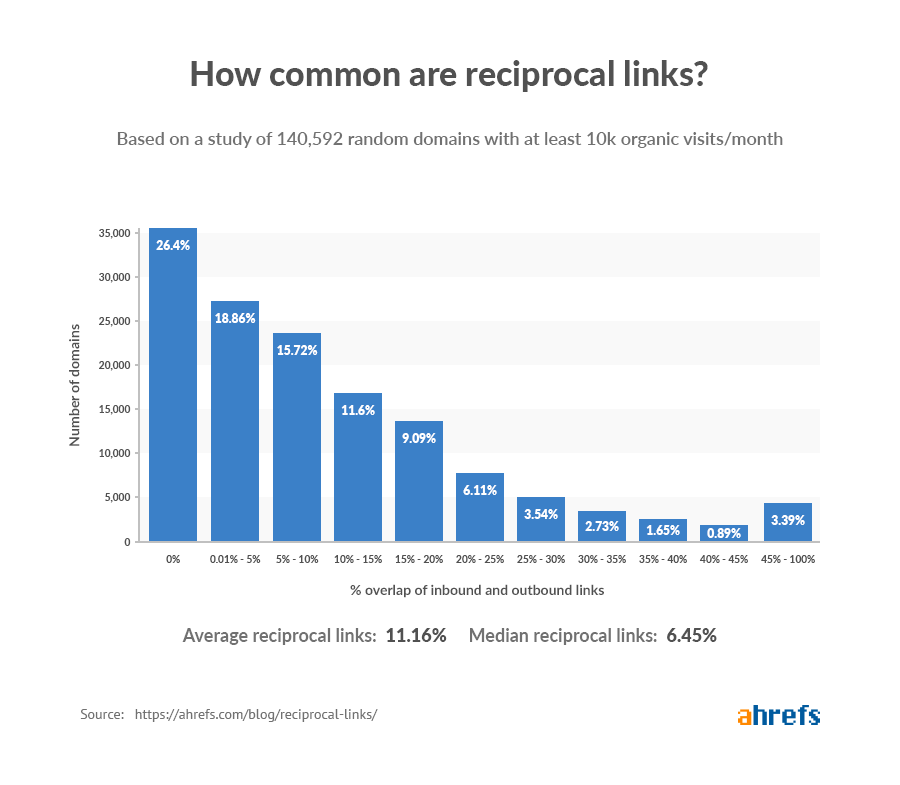Reciprocal Link
What is Reciprocal Link?
A reciprocal link occurs when two websites link to each other. Reciprocal links are sometimes built based on agreements for the purpose of SEO, which is not considered a good practice. However, when done naturally, reciprocal links are harmless.
Building reciprocal links for the purpose of rankings is considered a black hat SEO practice and is frowned upon by Google. The Spam Policies for Google Web Search mention excessive “link to me and I’ll link to you” exchanges as link spam.
Having a few natural reciprocal links is acceptable, but you want to avoid any types of reciprocal links that are built for the purpose of trying to game the system.
How common are reciprocal links?
Reciprocal links are common. We studied over 140,592 domains with at least 10K monthly visitors to see how many had reciprocal links. Over 73.6% of them had reciprocal links.

Popular websites and articles in related niches commonly link to each other, which means that reciprocal links are a common byproduct of the web.
When we studied the Ahfres blog, we found that 19.25% of the domains we link to also link back to us. This was not done by link exchanges, instead, these reciprocal links appeared naturally.
Even though stats show that a high percentage of websites have reciprocal links, it does not mean that deliberate and excessive link exchanges are safe.
Should you build reciprocal links?
Building reciprocal links can be beneficial if they add value to users and the web. For example, a fitness website may link to a healthy recipe website, and the recipe website may link back to the fitness website. This link exchange is based on the relevance and usefulness of the content, providing value to both sites’ audiences.
As long as the reciprocal links are built without the intention of manipulating the search engines and are instead created to serve the website’s users, they are considered healthy and safe.
However, you should avoid deliberately building large-scale reciprocal links and making them your primary source of links. If you are actively trying to exchange links through mass email outreach, such as asking for a reciprocal link, you should stop.
FAQs
Is link exchange the same as reciprocal links?
Link exchange and reciprocal links are similar concepts, but there is a difference between the two. Link exchanges are intentional agreements between webmasters to link to each other’s sites. In comparison, reciprocal links can occur naturally when two websites link to each other without prior agreement.